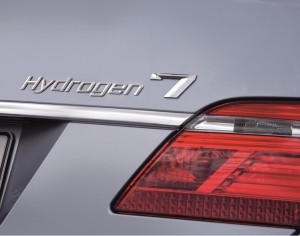BMW's Hydrogen 7
#1
As some of you here may recall, BMW manufactured a fleet of Hydrogen 7 vehicles as regular production cars.
The technology behind these cars is fascinating - liquid hydrogen that feeds the standard internal combustion engine.
What BMW learnt from producing a fleet of 100 Hydrogen 7s is also quite valuable.
I put together a complete look here including a look at my week with the car - make sure to continue through to the slide show at the end!
BMW Hydrogen 7 Review 20 June 2010
Article continues here

The technology behind these cars is fascinating - liquid hydrogen that feeds the standard internal combustion engine.
What BMW learnt from producing a fleet of 100 Hydrogen 7s is also quite valuable.
I put together a complete look here including a look at my week with the car - make sure to continue through to the slide show at the end!
BMW Hydrogen 7 Review 20 June 2010
BMW has been a thought leader and pioneer in the efficient, ecologically sound use of resources. Indeed, according to the Berlin Institute for Future Studies and Technology Evaluation (IZT), BMW manages its financial, ecological, and social resources five times better than the average German company. This is not surprising considering that, in 1973, BMW was the world?s first automobile manufacturer to create a department of Environmental Protection.
In the period from 1998 through 2008, BMW reduced its overall energy consumption by 26% and the emission of CO2 by 24% per produced vehicle. This comes from multiple innovations in manufacturing, including many at the BMW plant in Spartanburg, South Carolina, which obtains 63% of its energy from methane gas from a nearby landfill. This allowed the plant to reduce its CO2 emissions in 2006 alone by 53,593 tonnes. BMW has also reduced its water consumption per manufactured vehicle by 47% since 1996.
So it was not surprising when BMW, in September 2006, introduced the BMW Hydrogen 7.
In the period from 1998 through 2008, BMW reduced its overall energy consumption by 26% and the emission of CO2 by 24% per produced vehicle. This comes from multiple innovations in manufacturing, including many at the BMW plant in Spartanburg, South Carolina, which obtains 63% of its energy from methane gas from a nearby landfill. This allowed the plant to reduce its CO2 emissions in 2006 alone by 53,593 tonnes. BMW has also reduced its water consumption per manufactured vehicle by 47% since 1996.
So it was not surprising when BMW, in September 2006, introduced the BMW Hydrogen 7.

Thread
Thread Starter
Forum
Replies
Last Post



